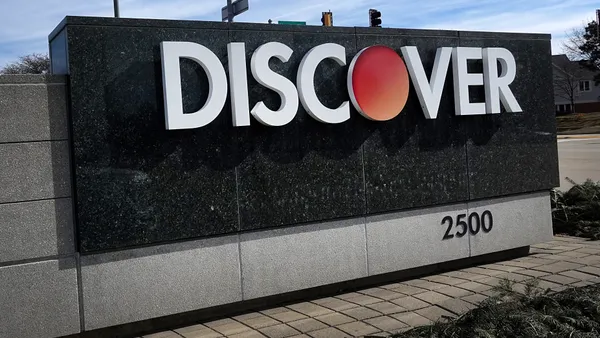Dive Brief:
- Deluxe, the Minneapolis-based payments company known for its printed paper checks, has partnered with the Boston-based fintech firm Aliaswire to offer a direct-biller service to Deluxe’s clientele, according to a Thursday press release.
- With Aliaswire’s direct-biller service, businesses can send bills, accept payments and receive their funds the next business day. Meanwhile, payers can review their bills and make payments online, via mobile app, with an interactive voice response system, at kiosks, by text and with digital wallets, according to the announcement.
- Among the financial institutions using Aliaswire to process their customers’ commercial payments are the banks Citi, BMO and East West Bank, according to the press release. The end-user companies range from small to large businesses.
Dive Insight:
Deluxe’s collaboration with Aliaswire marks its continued transition from checks to digital payments. In 2021, Deluxe CEO Barry McCarthy noted that the check division comprised about a third of the business. In July 2022, McCarthy said he anticipated the company’s payments business to generate more revenue next year than its check-printing arm.
The company also indicated last year that it would venture into cryptocurrency with plans to introduce a digital wallet that converts crypto to a stablecoin. That program hasn’t started yet, a Deluxe spokesperson said.
“Our goal is to facilitate our clients’ transition to digital payment offerings,” Michael Reed, division president of B2B payments at Deluxe, said in a statement. “Deluxe has been providing digital payment solutions to our customers for some time, and now, in partnership with Aliaswire, we aim to extend our reach.”
Check usage is declining in the U.S. as digital alternatives increase, but the paper payment method remains relevant, particularly among businesses. An August report from the Federal Reserve Bank of Atlanta found that 5.1% of cashless payments processed in the U.S. in 2021 were checks.
Other countries are making a more dramatic move away from checks, if they used them much at all. In the Atlanta Fed survey, the U.S.’s check use for payments, as a percent of the cashless category, was higher than 19 other countries ranked in the report.
In another Atlanta Fed report released in May, data showed the number of checks processed by the Federal Reserve is declining. The compound annual growth rate (CAGR) for checks processed by the Fed moved into negative territory between 2018 and 2021, falling 8.3% from 4.7 billion checks processed to 3.7 billion between those years, respectively.
The decline was steeper for consumers than for companies. The CAGR for business checks dropped by 5.9% while that figure slid 10.5% for consumers.










